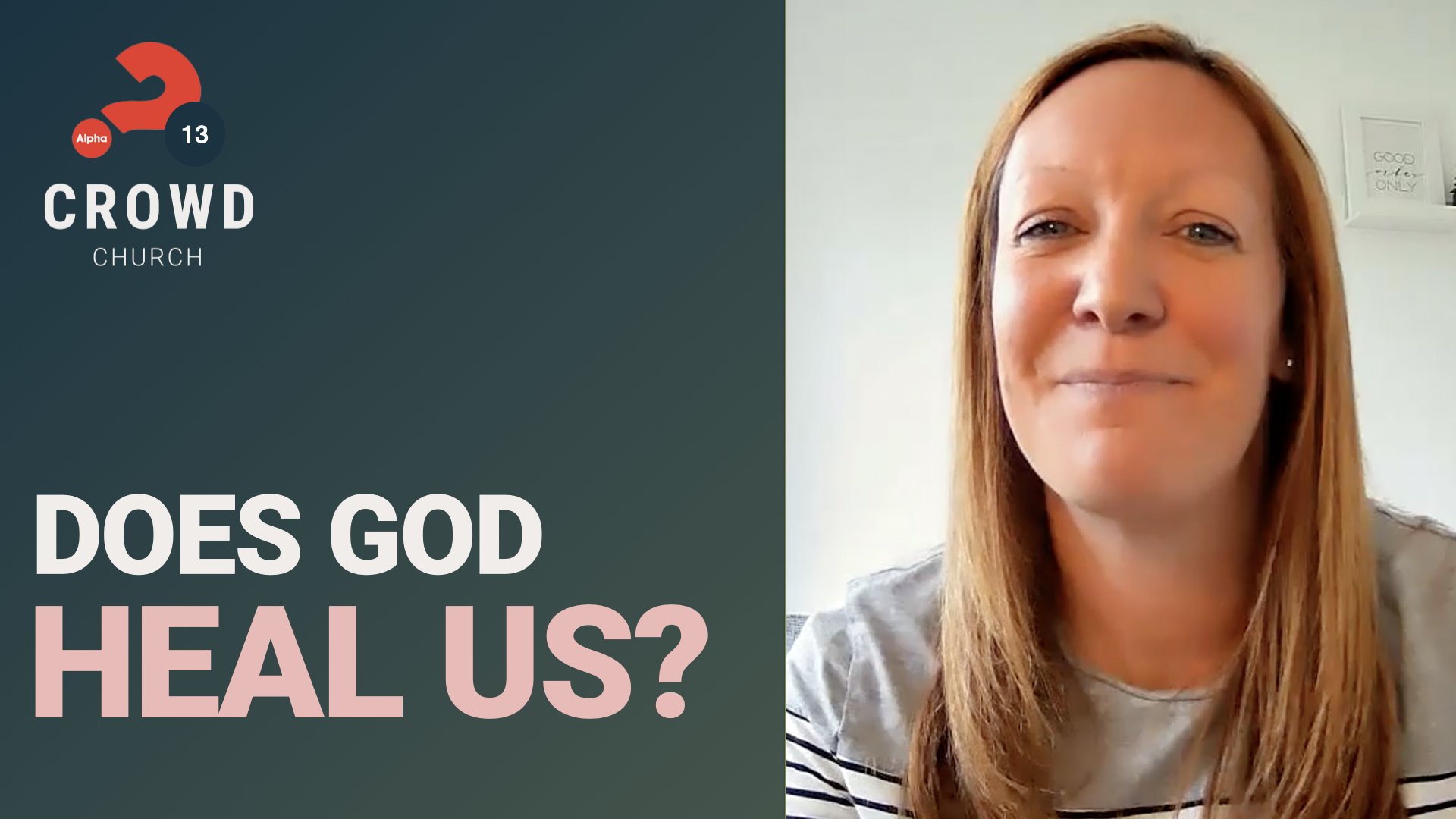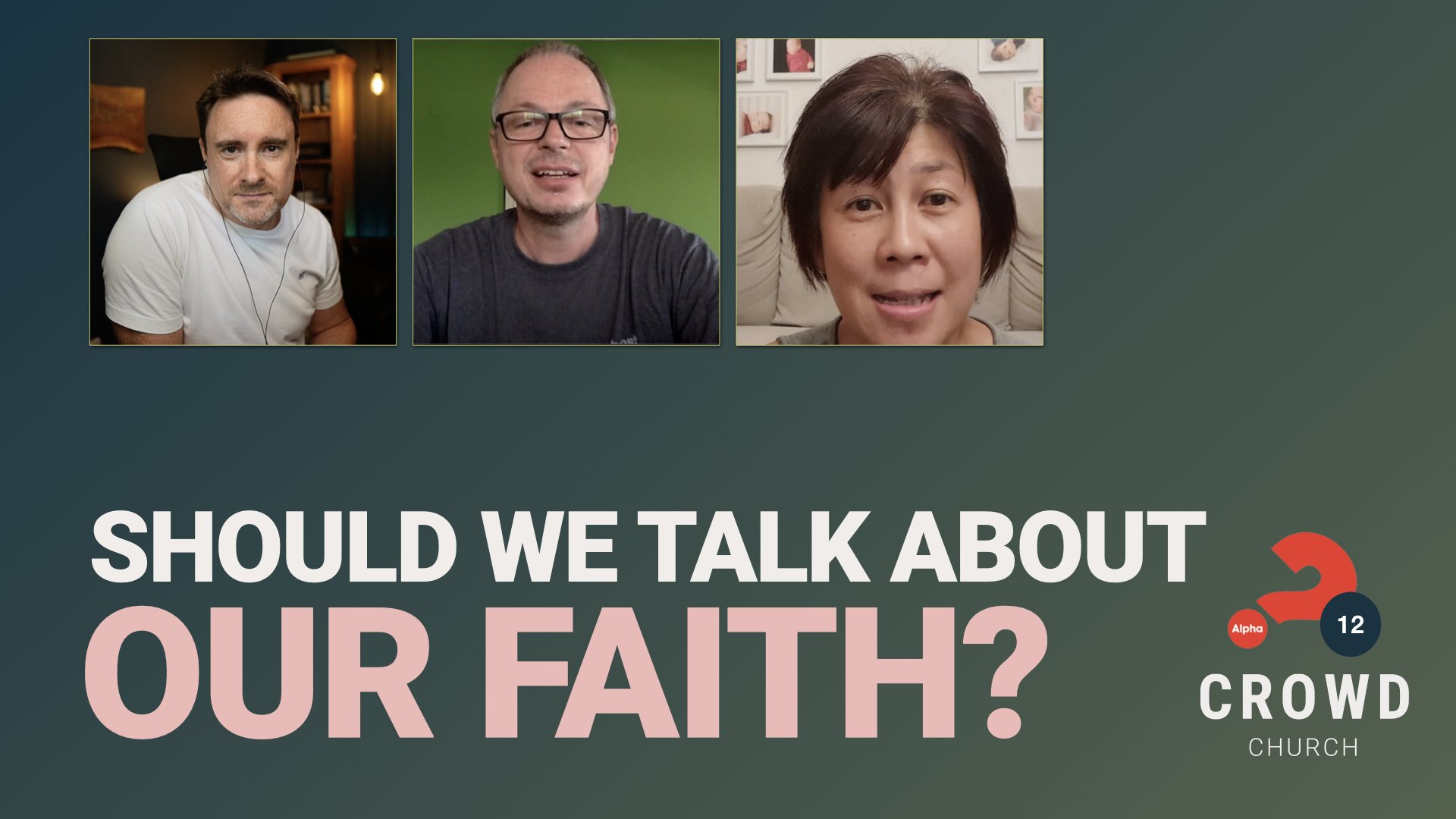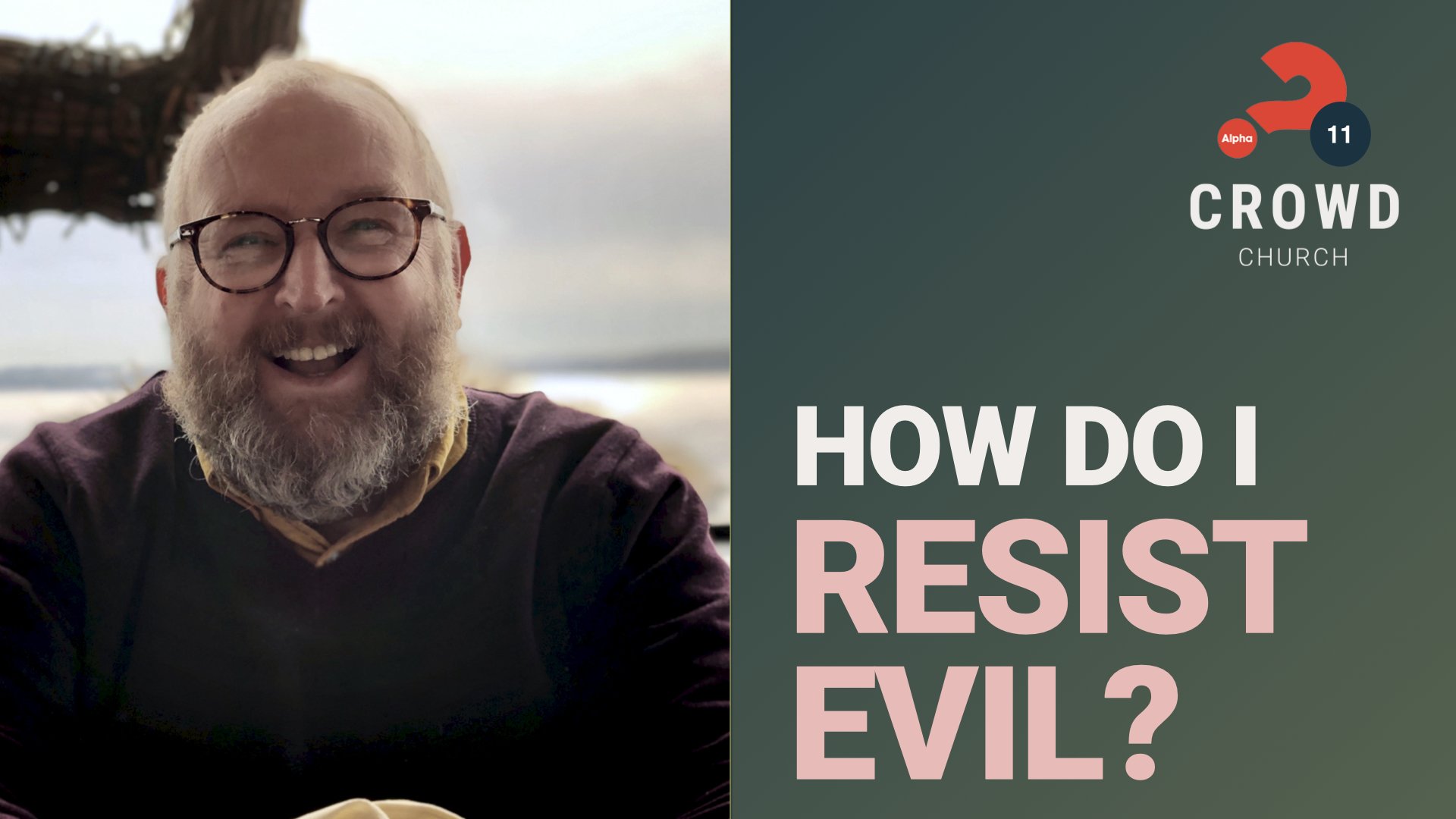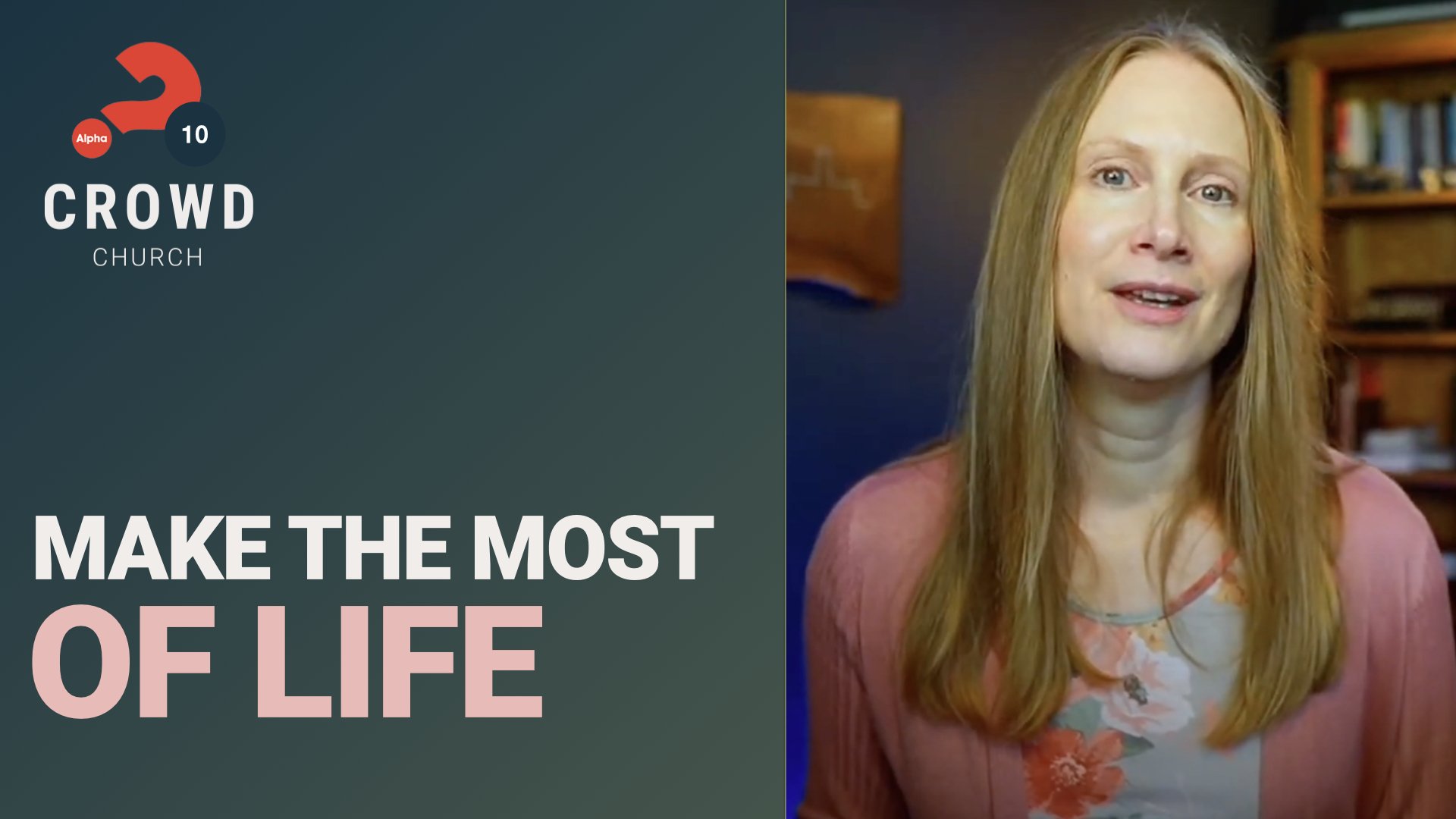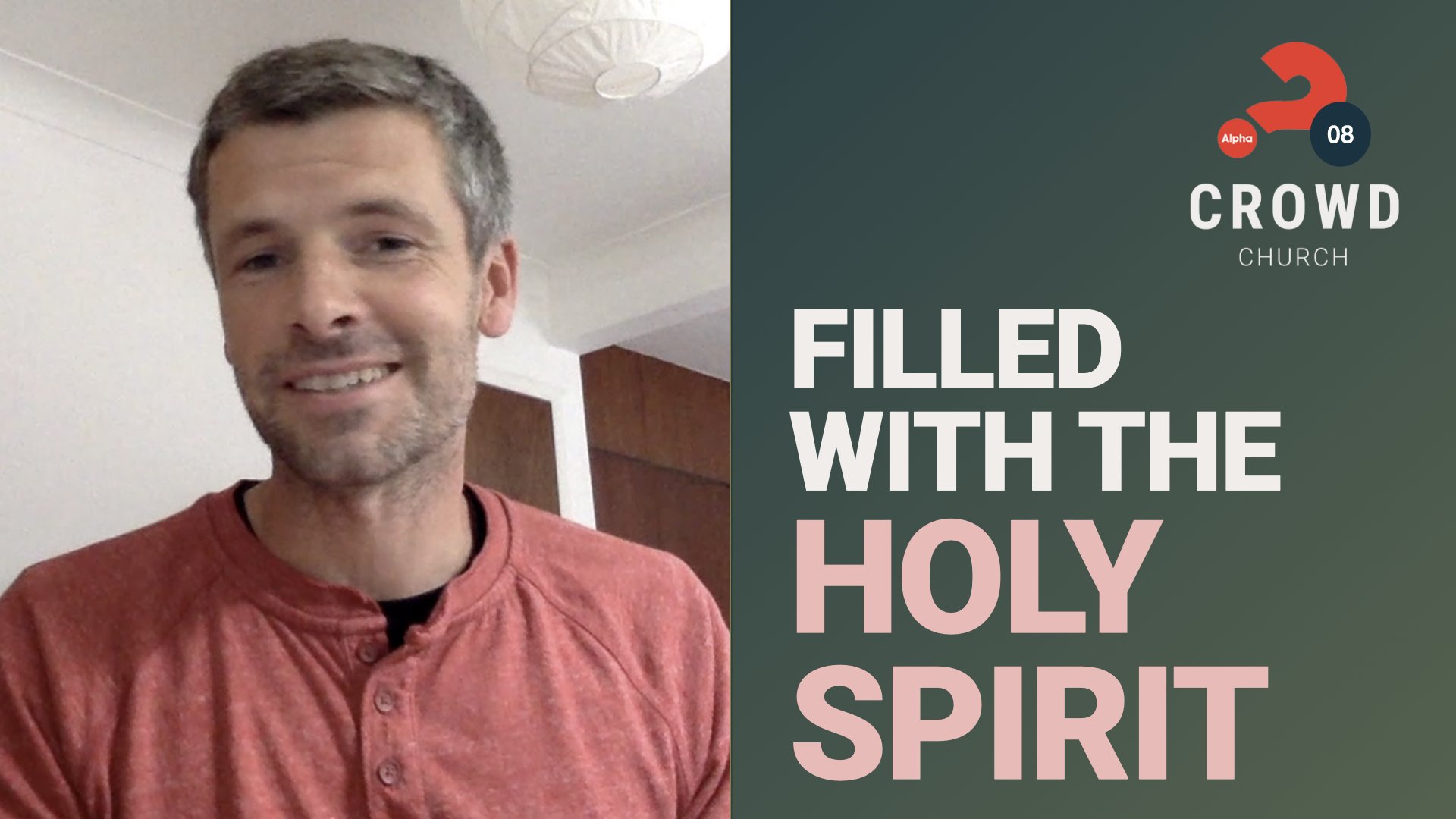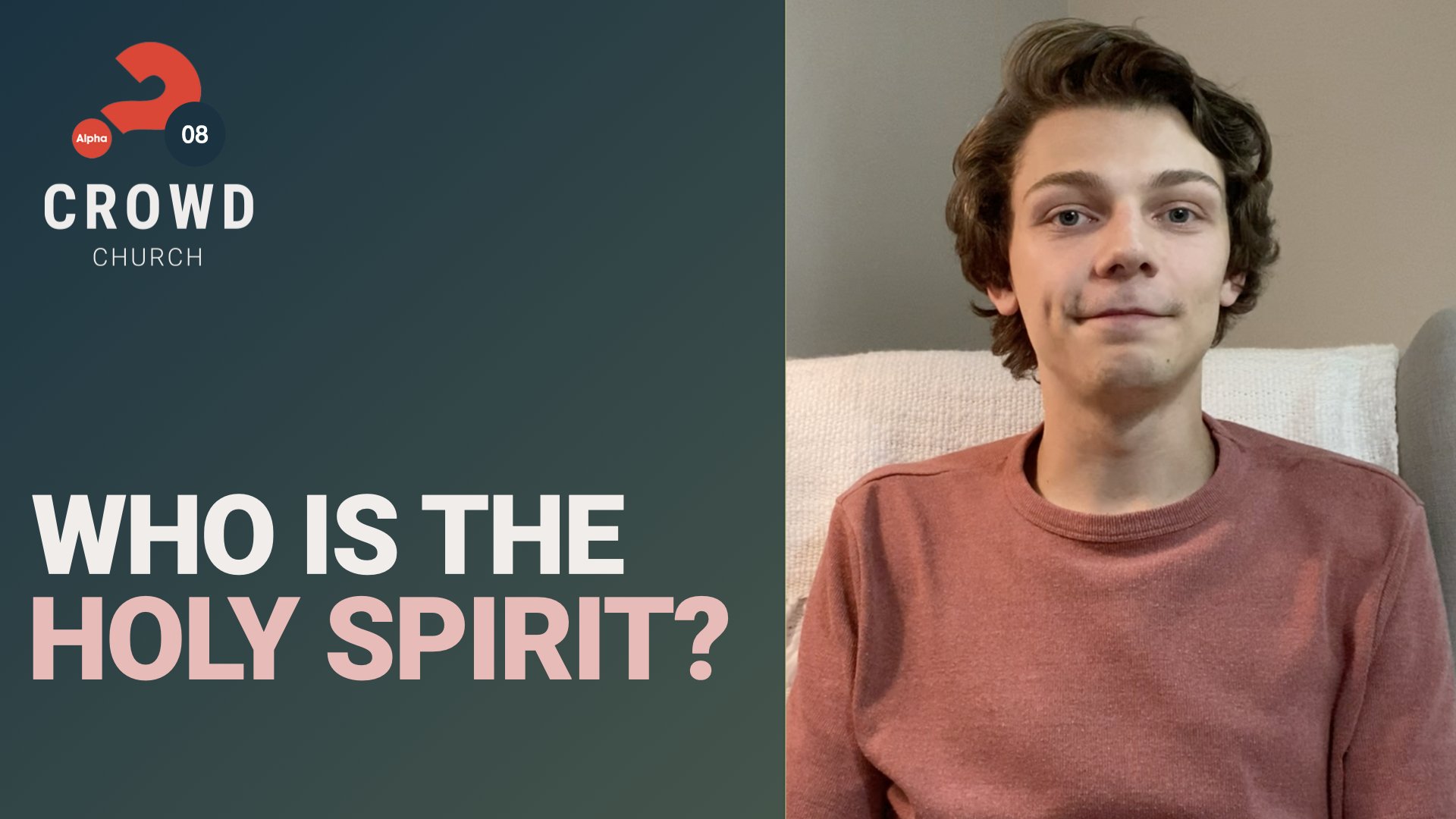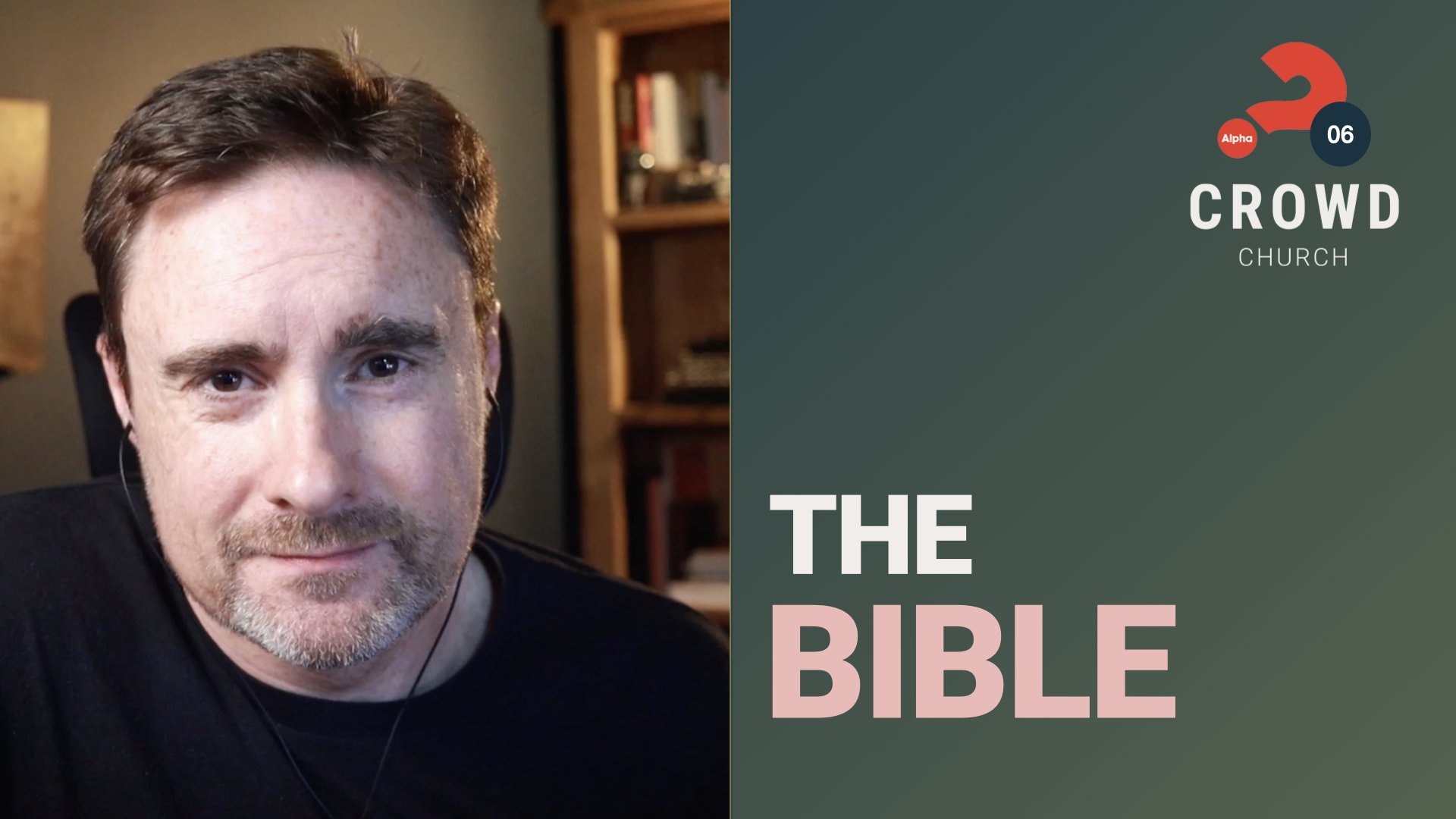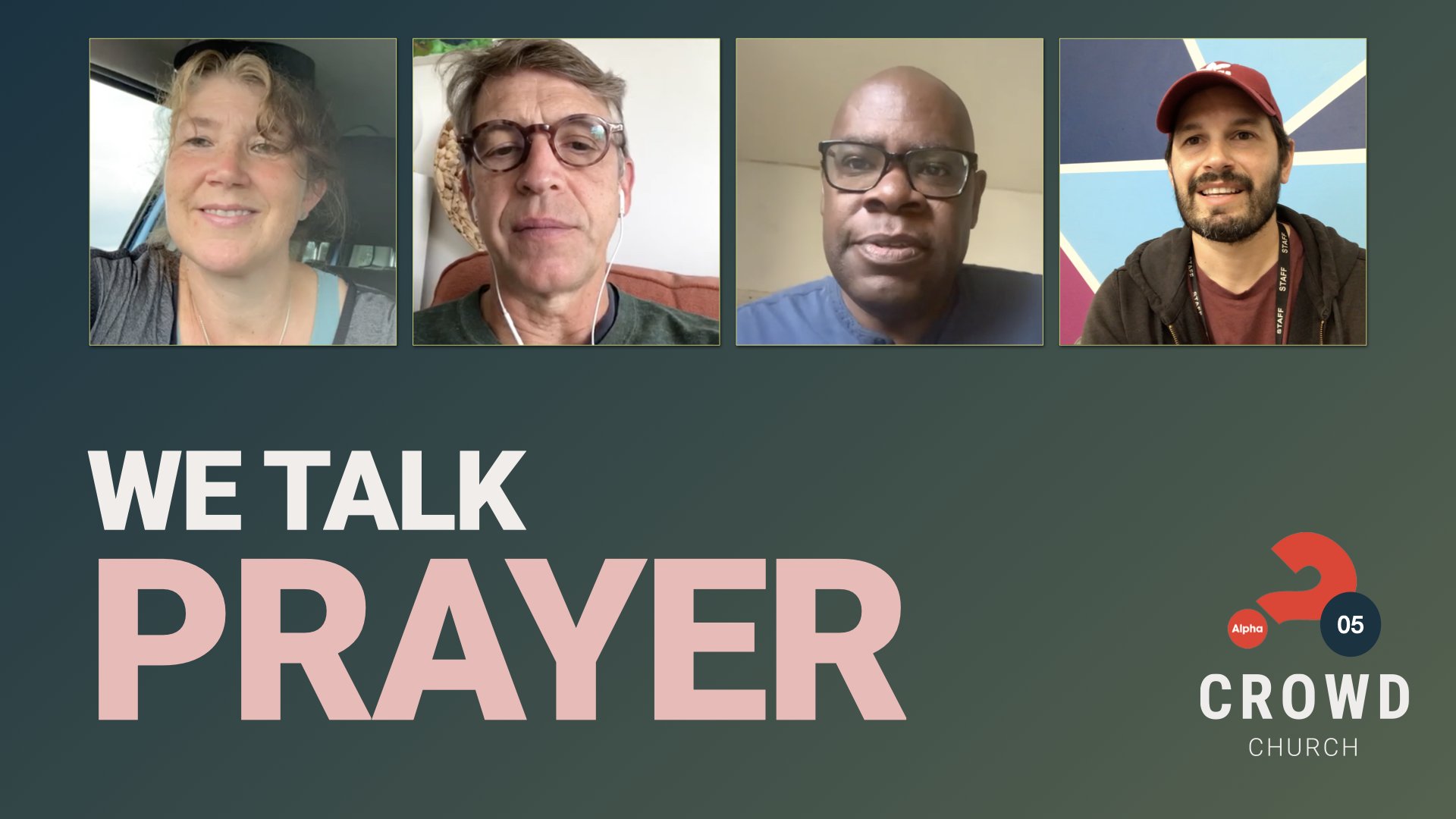How do I resist evil? - Alpha Course 11
Video of the complete Livestream where Dave asks, “How do I resist evil?”
Talk: How do I resist evil?
Where does temptation come from? Can we ever really be free? What about the bad stuff we read about every day in our newspapers or online? Do we accept it? Is this how life is? Or is there something we can do that could make a difference?
If you've got your Bible with you today, you may want to open it up to some of the scriptures that I'm going to share. I always encourage people to follow along with me using whatever version of the Bible you read or go back later and check the scriptures out. Romans 12:21 says this,
“Do not be overcome by evil, but overcome evil with good.”
"How's this even possible?" you might be thinking. The New Testament claims God is behind all good, just as the devil is behind all evil in the world. I remember when I first became a Christian, I had great difficulty coming to believe and understand that there is a God, especially a God, who could love ME, knowing what I'd been like and what I'd done. And then somebody said to me, you know, the devil exists as well.
It didn't shock me too much because of some of the things I'd seen in my life. And some of the things I'd experienced, and some of the things I'd done. I know for some folks, it's enough believing in God. But that is stretching the imagination now to think that there's a devil. For some people, it's the other way around. They find it easier to believe in the devil than they do God.
For most people, the idea of the spiritual forces of evil is tough to comprehend. They find it very hard to believe that there's a devil. It has to do with the false image that we've conjured up in our imagination. Many people have a wrong idea of God, like an old man with a big white beard on a cloud somewhere, looking down at all that is happening in the world. You know, for me, that's crazy, and it's unbelievable. Yet so many people have a false image of the devil. They have a picture of the devil with horns and cloven hooves with a forktail. And, that's equally unbelievable and unbiblical.
Let's look at Ephesians chapter six, verses 11 and 12. The apostle Paul says this,
“Put on the whole armor of God, that you may be able to stand against the wiles of the devil. For we do not wrestle against flesh and blood, but against principalities, against powers, against the rulers of the darkness of this age, against spiritual hosts of wickedness in the heavenly places.”
In other words, he's saying, this spiritual warfare is against forces that are cunning, powerful and evil. Warfare, generally, is not a pleasant business.
Why believe in evil?
So why should we believe in the spiritual forces of evil? Looking around our world, we see evil regimes, institutional torture, violence, mass murder, brutal rapes, terrorist atrocities on a scale unimaginable a few years ago — sexual and physical abuse of men, women and children. And the list could go on, and these things litter our newspaper daily.
Dunblane Massacre
You may remember or may have heard of an incident that took place in March 1996. A guy called Thomas Hamilton, who was 43 at the time, entered the primary school gym in Dunblane, Scotland, and opened fire on the class of five and six-year-olds. Sixteen children and their teacher were killed. Seventeen other children and teachers were wounded. The headteacher at the time said this, "Evil has visited our school". And any theology or worldview which ignores the existence of spiritual forces of evil has a great deal to explain.
Perhaps you've come to a place where you've decided to pursue Christianity and Christ. And it may be that you've started to struggle. You become more aware of temptation that perhaps you weren't aware of previously. It's like before you were a Christian, you were just gone with the flow. And now you find yourself moving against the flow. We're the only ones going in that direction. Everybody else seems to be going in a different direction. We've seen how the apostle Paul believed in the existence of these forces.
Jesus himself was tempted by the devil. And Jesus taught His disciples to pray, “deliver us from the evil one”. So scripture, tradition, and reason all point towards the existence of the devil. C.S. Lewis once said,
“There are two equal and opposite errors into which our race can fall about the devils. One is to disbelieve in their existence. The other is to believe, and to feel an excessive and unhealthy interest in them. They themselves are equally pleased by both errors."
- C. S. Lewis
I'm sure you're aware that today in our society, there's a whole new interest in the demonic and in their core powers, witchcraft, spiritualism, palm reading, Ouija board, channelling, consulting the dead, astrology, horoscopes. All this stuff is expressly forbidden in the Bible. And I think many people today also explore these kinds of things because they are searching for something spiritual. They're searching because they know there has to be more to life than what they have deep down inside.
How does evil work?
So how does evil work? What are the devil's tactics? The devil's ultimate aim, Jesus tells us, is actually to destroy us. Jesus said “the thief comes to steal, kill, and destroy”. They're not actions of a friend or an ally. Jesus said, “but I have come to do the opposite. I came that you may have life and have life in its fullness”.
And right at the beginning of the Bible, we have an exposé of how the devil works. In Genesis, chapter three, the devil appears in the form of a serpent. And we see his initial tactic is to raise doubts. Let's look at verse one.
“Now the serpent was more crafty than any of the wild animals the Lord God had made. He said to the woman, “Did God really say, ‘You must not eat from any tree in the garden’?””
In a very similar way, when he's tempting Jesus, He came to Jesus and said, "If you are the Son of God", again casting doubt, and the way he comes to each of us today is by casting doubt. If God loved you, this wouldn't happen, or that wouldn't have happened. Or, if you were a Christian, you wouldn't have done this.
And if you look back a few verses in Genesis chapter two, verses 16 and 17, we see, first of all, God gave them wide-ranging permission. And secondly, he gave one prohibition. And then, thirdly, there was a penalty. It says,
“And the LORD God commanded the man, “You are free to eat from any tree in the garden; but you must not eat from the tree of the knowledge of good and evil, for when you eat from it you will certainly die.””
The prohibition here was because we don't need to know about or experience certain things. God didn't want us to know evil. He wanted us to know only good. And he warns us that there is a penalty if we disobey. It says, when you eat of it, you will surely die.
Now watch how evil operates. The first thing that happens is that the demonic powers ignore that permission. Verse one, "Did God really say you must not eat of the tree in the garden?" Today, when he tempts us, he ignores the permission. God has said that he has given us all things richly to enjoy. That's the generosity of God, but Satan ignores that.
Satan does not tell people who are not Christian about all the beautiful things it's possible to enjoy as a Christian. The amazing privilege of our relationship with God himself. The knowledge of having the peace and the grace of God in our daily lives. To see our lives being transformed. To see ourselves freed by the goodness of God, but the devil ignores these things. And he concentrates on a small list of things we are told to keep away from. And there's a perfect reason why we should keep away from those things, that God doesn't want to see us come to harm in any way.
And then the enemy denies the penalty we read about in verse two,
“Then the serpent said to the woman, “You will not surely die. For God knows that in the day you eat of it your eyes will be opened, and you will be like God, knowing good and evil.””
And we see in these verses that follow the consequences of breaking trust - shame and embarrassment we read about in verse seven. And because there are things that we are embarrassed about, we tend to cover them up. We and that's what Adam and Eve did with the fig leaves, then the relationship, the friendship with God, had been broken. Verse eight says this,
“And they heard the sound of the LORD God walking in the garden in the cool of the day, and Adam and his wife hid themselves from the presence of the LORD God among the trees of the garden.”
And if you read on in verse 10, the man says, "I was afraid". And so they hid. Don't be afraid. Don't be ashamed. Come to God. And God immediately starts to try to draw them back to himself. In verse nine,
“But the LORD God called to the man, “Where are you?””
And thus the cry of a parent whose child has gone astray or got lost.
The Holy Spirit vs the Devil
The devil's tactics are to destroy us, not do us good, and raise doubt. He tempts us to draw us away from God. He is the accuser, not our friend. My friends, if the Holy Spirit points out something wrong in our lives, he will be very specific. We'll know what it is. And we can repent, and we can turn away from it. We can turn back to God. The Holy Spirit brings conviction into our lives, which offers forgiveness and hope.
But when the enemy comes, he brings condemnation. And he brings hopelessness and guilt and causes you to turn away from God. So know the difference between conviction from the Holy Spirit that will draw you toward God and condemnation from the devil, which will always want to drive you away from God.
And we are told in the New Testament that Jesus was tempted in every way that we are and how we may be tempted. It may be that a thought is placed within our mind, something we know is not good. It's an evil thing. We know it doesn't come from God. And we have a choice whether to accept or reject it, and Jesus rejected it.
We need to make the distinction between temptation and sin. When we are tempted, we decide whether to submit to it or resist it. It's only sinning if we adopt that thought ourselves, dwell on it, and act upon it. Every time we embark on a course of sin, we don't realise that the aim is to lead us on a path that leads to destruction.
What is our position?
Colossians chapter one, verse 13, says this,
“He has delivered us from the power of darkness and conveyed us into the kingdom of the Son of His love,”
If you have received Christ into your life, as your Lord and Saviour, we need to know that Jesus has set us free from the addictions, habits, the patterns of our past. And that means we don't have to do the things we used to do. We are free, free to stop. We've been transferred from the dominion of darkness to the kingdom of light — the kingdom of Jesus where Jesus rules. Colossians chapter two, verse 15 revolutionised my thinking and my life. It's talking of Jesus, and it's simply this,
“Having disarmed principalities and powers, He made a public spectacle of them, triumphing over them in it.”
Yes, the battle isn't over yet. On the cross, Satan, the devil, was defeated. He was demoralised. The cross and the resurrection are decisive moments in history. But the devil was not destroyed. There will come a moment when he is destroyed - when Jesus returns.
D-Day vs V-E day illustration
An illustration to show the differences could be like D-Day and V-E Day. D-Day was the decisive moment in the second world war on the sixth of June 1944 that determined the war's outcome. There was no real doubt about the future of it. But it wasn't over. The mopping-up operation continued until V-E Day, on the eighth of May 1945, when the war in Europe was over.
And in a sense, we live between D-Day and V-E Day. We live at a time where Satan is a conquered foe, but he's still around, he's still trying to influence, he still lies. If your experience is anything like mine, I found that when I came to Christ, there were some things I was set free from almost immediately. And then there were other things that I struggled with.
But little by little, as I surrendered my life to Christ, as I aligned my life with the Word, this ongoing process continued in utterly setting me free. And that will be a work that continues till Jesus returns. But one day, he will return, and there will be no more evil. And actually, this is the amazing grace and love of God. Given that there are still some battles going on, we're all vulnerable.
How to defend ourselves?
We read in Ephesians, chapter six, verses 13 to 17,
“Therefore take up the whole armor of God, that you may be able to withstand in the evil day, and having done all, to stand. Stand therefore, having girded your waist with truth, having put on the breastplate of righteousness, and having shod your feet with the preparation of the gospel of peace; above all, taking the shield of faith with which you will be able to quench all the fiery darts of the wicked one. And take the helmet of salvation, and the sword of the Spirit, which is the word of God;”
He goes on to say, keep your relationship with Jesus right. Put on the breastplate of righteousness, verse 14. One definition of righteousness is a right relationship with God and other people. We're encouraged in verse 15 to get involved in service. It says, "having shod your feet with the preparation of the gospel of peace." It's talking about each of us standing up and standing out in our communities where we live, where we identify as being a follower of Christ.
It continues in verse 16. Keep trusting God in difficult times. It continues about putting on the helmet of salvation. That's where we will win the battle of the mind. When Jesus was being tempted, He responded to the temptation by quoting scripture, and I want to encourage you to read this Bible, get to know the Scriptures, let them become life to you. Let them become something that will sustain you in hard times and cause you to flourish at all times.
It's fascinating to me that there's no piece of armour for the back. We're most vulnerable when we're running away. Ephesians six, verse 18, says this,
“And pray in the Spirit on all occasions with all kinds of prayers and requests.”
The enemy hates it when he sees the people of God coming to their knees to pray. Don't be overcome by evil, but overcome evil with good!
CONVERSATION STREET
Questions we ask this week
Conversation Street is part of our live stream, where the hosts (in this case, Matt & Sal) chat through Dave’s talk and answer questions that were sent in through the live stream. You can watch the conversation in the video, it starts at 33 min 10 seconds into the live stream, or you can go straight there by clicking the button below. This week’s questions and topics of conversation are:
Did you find it easier to believe in God or the devil at the start of your faith journey?
How can there be a God if there’s so much evil & suffering in the world?
How do you reconcile the whole God-Devil thing in your head?
How do you recognise evil without becoming obsessed with the thought that the devil is directly behind all that’s bad?
Should I be scared of evil or fight it?





